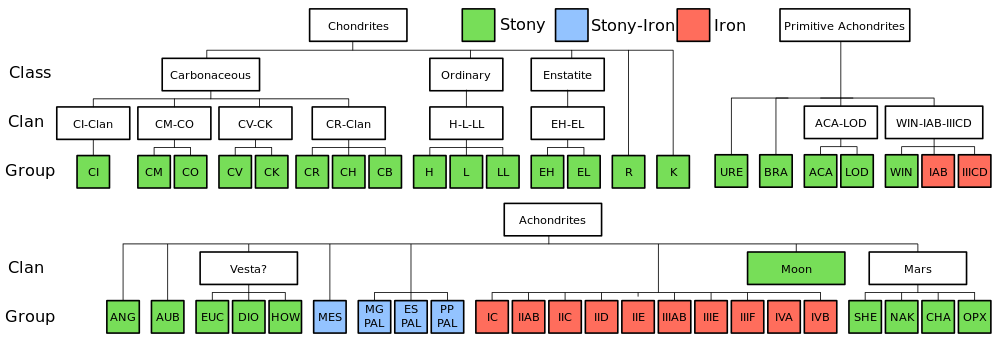Meteorites are extraterrestrial rocks representing the most versatile materials available to obtain information on their parent bodies and on the origin and processes of the Solar System, whereas planetary analogues are terrestrial rocks or minerals that match the mineralogical-chemical composition of planetary surfaces detected by remote sensing. In particular, meteorite groups are very different in chemical and physical properties (Figure), age and origin that reflect the features of their parent or precursor body (asteroids, comets, planets). The study of meteorites and planetary analogues is increased in the last years due to the sample- return Apollo missions to Hayabusa 1-2, Osiris-Rex, Mars2020, and the related growing attention to future planetary missions. However, not all meteorite classes can be ascribed to an ascertained parent body. Thus, the interest on meteorite studies supporting projects devoted to Near Earth Asteroids (NEAs) observations for Earth surveillance and defence is expected to increase sensibly in the next years.
For these reasons a new research activity on the analyses and studies of meteorites and terrestrial planetary analogues has started at the Micro X-ray Lab facility. In particular, the research activities conducted in the laboratory include: the chemical and mineralogical characterization of meteorites for cosmochemical studies; methodological microstructural studies of meteorites; validation of spectral measurements on planetary analogues and meteorites; research of new minerals in meteorites.

Figure source: M.K. Weisberg, T.J. McCoy, A.N. Krot (2006). “Systematics and Evaluation of Meteorite Classification”, in Meteorites and the Early Solar System II, edited by Lauretta, S. Dante and H.Y. Sween Jr, 19–52. Univ. of Arizona Press.